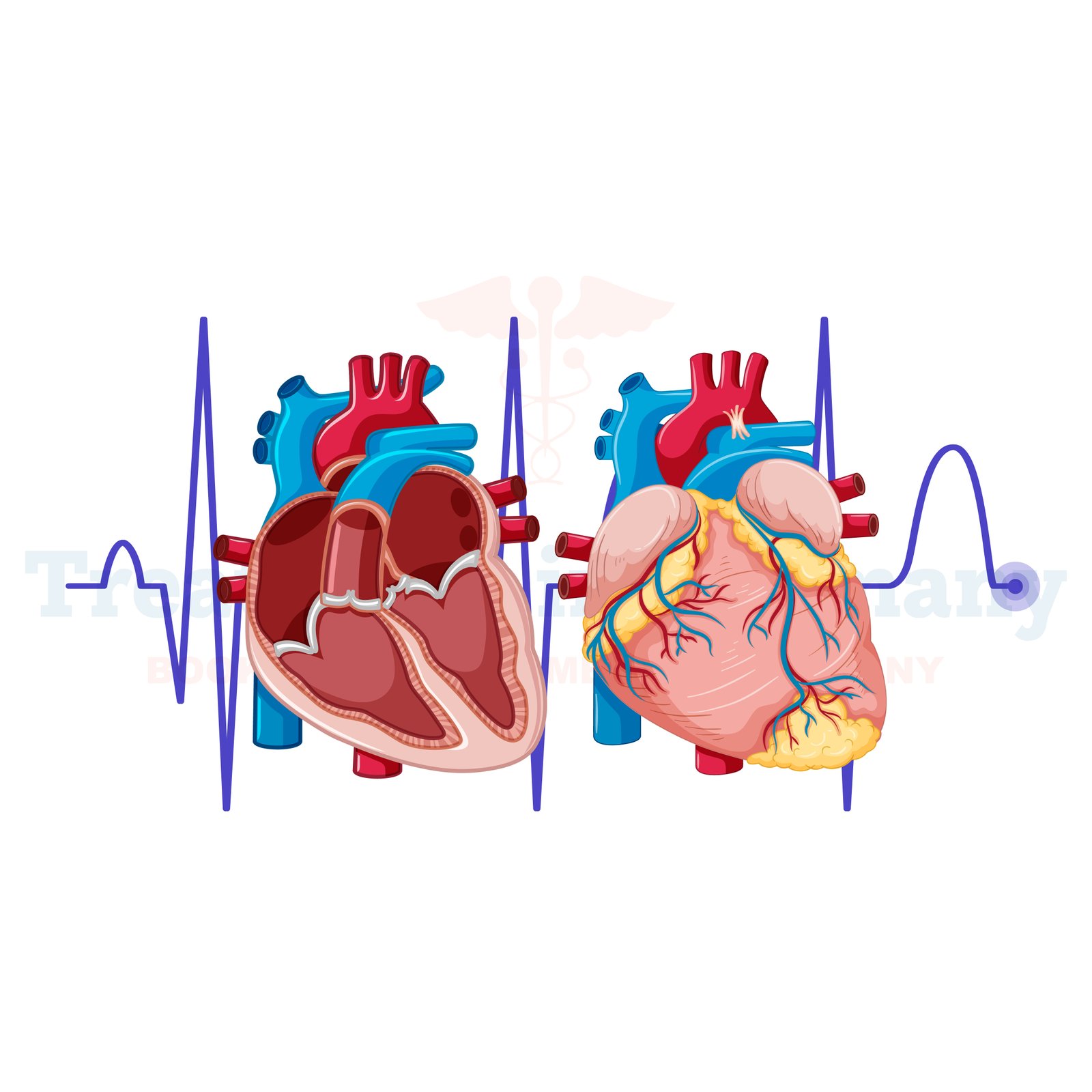Hypertrophic Cardiomyopathy Treatment in Germany
Hypertrophic cardiomyopathy (HCM) is a genetic heart condition characterized by abnormal thickening of the heart muscle, particularly in the left ventricle. This thickening can impede blood flow and affect the heart’s ability to pump effectively, leading to complications such as arrhythmias, heart failure, and sudden cardiac arrest. Germany has become a global leader in providing advanced and innovative treatments for HCM, offering patients world-class facilities, cutting-edge therapies, and expert care from specialists.
What is Hypertrophic Cardiomyopathy?
HCM occurs due to genetic mutations affecting heart muscle proteins. These mutations cause the heart muscle to thicken excessively, leading to reduced elasticity and impaired blood flow. While the condition may be asymptomatic in some individuals, others may experience life-threatening complications without timely intervention.
Types of Hypertrophic Cardiomyopathy
HCM can manifest in various forms, depending on the location and extent of thickening:
- Obstructive HCM: The thickened heart muscle obstructs blood flow from the left ventricle to the aorta.
- Non-Obstructive HCM: Thickening occurs without significant obstruction of blood flow.
- Apical HCM: The thickening is confined to the apex of the heart.
- Midventricular HCM: Thickening occurs in the middle portion of the ventricle, potentially causing obstruction.
Risk Factors for Hypertrophic Cardiomyopathy
HCM is primarily a genetic condition, but certain factors can increase its severity or exacerbate symptoms:
- Family History: A strong genetic predisposition significantly increases risk.
- Obesity: High body mass index (BMI) can strain the heart.
- High Blood Pressure: Prolonged hypertension may worsen heart muscle thickening.
- Autoimmune Diseases: Inflammation can indirectly affect heart tissue.
- Diabetes: Poorly controlled blood sugar can lead to complications.
- High Cholesterol (Hyperlipidemia): Elevated cholesterol levels can contribute to heart disease.
Symptoms of Hypertrophic Cardiomyopathy
Symptoms of HCM can vary widely and may include:
- Chest pain or tightness, especially during physical activity
- Shortness of breath
- Dizziness or fainting (syncope)
- Fatigue or reduced exercise capacity
- Palpitations due to arrhythmias
- Swelling in the legs, ankles, or feet (in advanced stages)
Diagnosis and Diagnostic Tools
German hospitals are equipped with advanced diagnostic tools to accurately diagnose HCM:
- Electrocardiogram (ECG): Identifies irregular heart rhythms or electrical activity.
- Echocardiogram: Visualizes the heart’s structure and measures wall thickness.
- MRI (Magnetic Resonance Imaging): Provides detailed imaging to assess heart muscle abnormalities.
- CT (Computed Tomography) Scan: Offers additional insights into structural issues.
- X-rays: Helps rule out other potential causes of symptoms.
- Genetic Testing: Identifies mutations associated with HCM.
- Blood Tests: Checks for underlying conditions like diabetes, inflammation, or high cholesterol.
Innovative Treatments for Hypertrophic Cardiomyopathy in Germany
Germany has earned global recognition for its pioneering approaches to treating HCM. Here are some advanced therapies and treatments available:
Medication Management
- Beta-Blockers: Reduce heart rate and improve blood flow.
- Calcium Channel Blockers: Relax the heart muscle to enhance efficiency.
- Anti-Arrhythmic Drugs: Control irregular heart rhythms.
Septal Reduction Therapies
- Surgical Myectomy: A procedure to remove a portion of the thickened heart muscle, relieving obstruction.
- Alcohol Septal Ablation: Minimally invasive technique that uses alcohol injections to reduce muscle thickness.
Implantable Devices
- Implantable Cardioverter Defibrillator (ICD): Prevents sudden cardiac death by detecting and treating life-threatening arrhythmias.
- Pacemakers: Regulate heart rhythm in patients with advanced conduction issues.
Dendritic Cell Therapy
An emerging immunotherapy that targets inflammation and promotes tissue repair, potentially improving heart function.
Complementary Therapies
- Physical Therapy: Tailored exercise programs to enhance cardiovascular health.
- Lifestyle Modifications: Includes dietary adjustments, weight management, and smoking cessation.
- Pain Relievers: For symptom management.
Why Choose Treatment in Germany?
Germany’s healthcare system offers unparalleled advantages for HCM patients:
- State-of-the-Art Hospitals: Equipped with advanced diagnostic and treatment facilities.
- Experienced Specialists: Renowned cardiologists and surgeons with expertise in managing complex cases.
- Innovative Therapies: Access to treatments like dendritic cell therapy and minimally invasive surgeries.
- Holistic Care: Comprehensive programs addressing medical, physical, and emotional needs.
- International Patient Services: Tailored care plans and multilingual support for international patients.
- Focus on Research: German hospitals are often involved in groundbreaking clinical trials, providing access to the latest treatments.
Lifestyle Solutions
Effective management of HCM often combines medical intervention with lifestyle modifications:
- Regular Monitoring: Routine check-ups and imaging to track disease progression.
- Dietary Adjustments: Focus on heart-healthy foods and reducing salt intake.
- Exercise Programs: Designed by physical therapists to avoid overexertion.
- Stress Management: Techniques such as yoga and meditation.
- Weight Management: Maintaining a healthy BMI to reduce cardiac strain.
- Avoiding Alcohol and Stimulants: Minimizes the risk of arrhythmias.
Conclusion
Hypertrophic cardiomyopathy is a complex condition requiring specialized care and advanced treatment options. Germany’s world-class healthcare system provides a unique combination of expertise, innovation, and patient-centric care. From cutting-edge therapies like dendritic cell therapy to traditional surgical interventions, German hospitals are at the forefront of HCM treatment.
For patients seeking comprehensive solutions, Germany’s renowned specialists, state-of-the-art facilities, and holistic approach make it an excellent choice for managing HCM and improving quality of life. If you or a loved one are dealing with HCM, exploring treatment options in Germany could be a life-changing decision.
👉 Contact us for
further information and receive a complimentary consultation.


.webp)
 (1).webp)

.webp)
 (1).webp)


.webp)
 (1).webp)

.webp)
 (1).webp)
